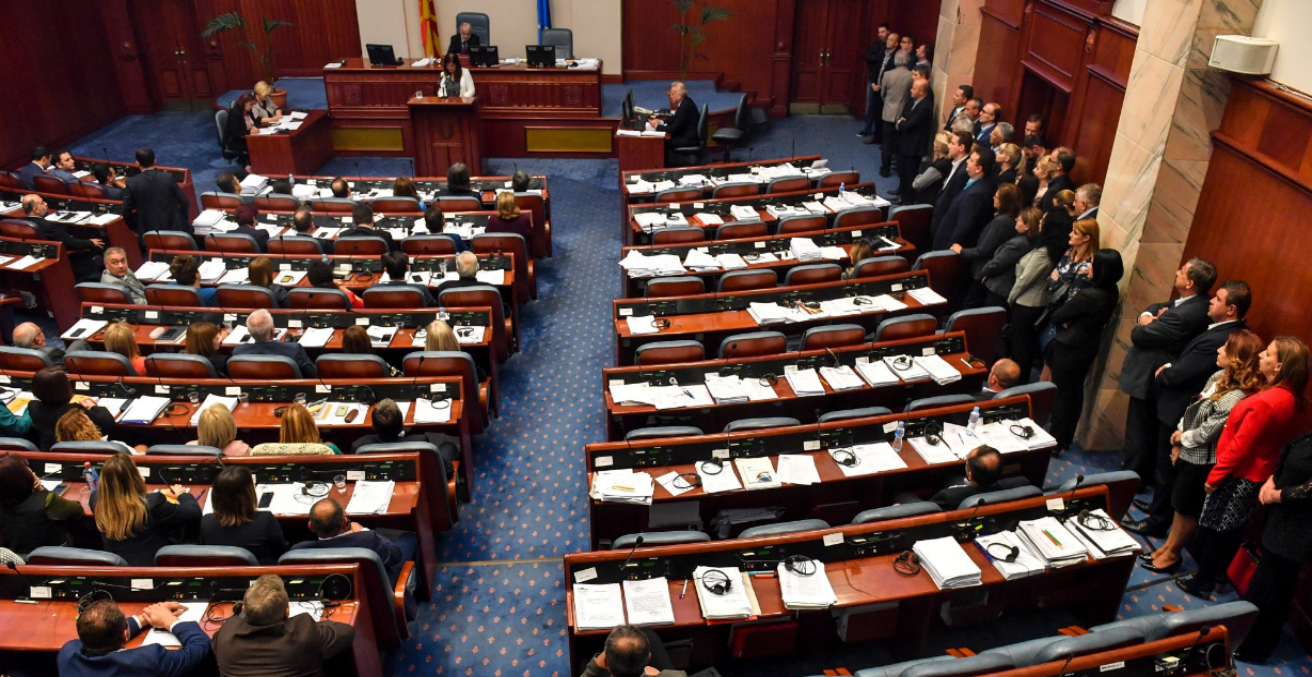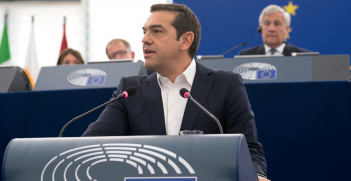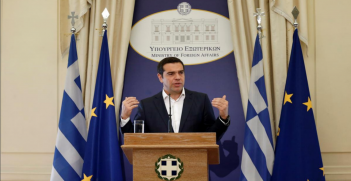Deal or No Deal? Macedonia’s Future in Limbo

With uncertainty on all sides, now seems like a once-in-a-lifetime opportunity to determine Macedonia’s future.
Last week, the necessary two-third majority of Macedonia’s Parliament adopted the Prespa Agreement and paved the way to start the rather complicated process of implementing the country’s name change.
A tortuous path
The Prespa Agreement was signed by the Greek and Macedonian foreign ministers on 17 June, after close cooperation and diplomatic effort from Macedonian Prime Minister Zoran Zaev and Greek Prime Minister Alexis Tsipras, ending decades of dispute between Athens and Skopje. The former had for years blocked access of the latter to NATO and EU due to the name issue. The Greek fear is that Macedonian irredentism could spark territorial claims to the eponymous region in Greece’s north.
After the Macedonian Parliament initially passed the Prespa Agreement, the Macedonian people were called upon to express their views. On 30 September, the population of Macedonia voted on whether they support the country joining the European Union (EU) and North Atlantic Treaty Organization (NATO) by accepting the Prespa Agreement with Greece that foresees a name change to ‘Republic of North Macedonia’.
The Prespa Agreement was criticised ahead of the referendum and even President Gjorge Ivanov opposed the deal, claiming it would undermine the country’s sovereignty and right to self-determination. During his speech at the United Nations General Assembly in late September 2018, the president expressed his aversion towards the agreement and announced that he would boycott the referendum, calling upon citizens to do so as well. Noteworthy was the walk-out of several members of the Macedonian delegation during Ivanov’s speech who back the name change and did not want to ‘give legitimacy’ to the claims made in the speech.
Over 91 per cent voted yes in the September referendum, agreeing to adopt the name change in order to access NATO and EU membership. But participation was too low, with only 37 per cent of 1.8 million eligible voters participating, and consequently the referendum fell short of the necessary 50 per cent turnout for a success.
As the referendum had only an advisory function rather than being decisive, it was up to the parliament in Skopje to make a decision. Prime Minister Zaev urged lawmakers last week to adopt the Prespa Agreement officially and implement the process to change the country’s name. Initial debates remained without a solution but last Friday the necessary two-third majority – equalling 80 out of 120 seats – adopted the agreement. This paved the way to start implementing the name change.
The challenges ahead
Lawmakers now need to prepare the necessary amendments to Macedonia’s constitution, which would require another vote with each amendment being entitled to a total of three days of discussion. This and other steps can still extend the whole process – provided the necessary majorities are reached every time – until early next year before the name change would be implemented.
Final implementation would also depend on the Greek Parliament ratifying the deal after the Macedonian steps have been completed. Reactions from Athens towards the move forward seem mostly positive, despite some parts of the Greek Parliament opposing the name deal.
This sends a signal of anything but stability. There is the possibility of new elections in Macedonia if the name-change process ends up failing. It cannot be assumed that Zaev would win the next elections. Equally, Greece is soon up for new elections, with parties set to enter the parliament in Athens – and potentially forming the next government – that widely oppose the deal with Macedonia. With this uncertainty, now seems like a once-in-a-lifetime opportunity to determine Macedonia’s future.
Regional impact
Furthermore, there should be an interest in integrating the whole region into the EU and NATO families, instead of leaving the option of a turn to Eurasia and mingling with Russia.
Russia has a significant interest in remaining plugged-in to the region and influencing politics in the Balkans. Russian interference was feared in the referendum held in September, after the US brought forward allegations and Greece expelled two Russians for trying to thwart the name deal. Social networks allegedly saw a spike in fake news about the EU and NATO that were spread by Russian bots in the run-up to the referendum that caused Macedonia (and its neighbours) to be in limbo until last week’s decision. The threat of failure has not been warded off yet.
Political chaos and instability is far from what the region needs and what the wider European community wants. Despite international efforts to foster prosperity and economic development in the Balkans, old grievances continue to billow under the surface. The EU has refocused in the region through its new enlargement strategy for the Western Balkans, and NATO has expressed an ongoing interest to integrate the nations of the Balkans into the transatlantic alliance.
Despite the referendum falling short, the Macedonian leadership and parliament have sent a strong signal of political willingness by agreeing to implement the name-change process. Consequently the European and international community need to remain committed to the region and support a successful implementation of the process.
Nationalistic narratives have exploited grievances and driven polarisation in the Balkans before. Its countries and wider European neighbours should not have an interest in returning to those policies and conflicts of the past. Friday’s decision has shown that for now, movement seems to be taking place in the opposite direction, towards a prosperous future through transatlantic integration.
Jacqueline Westermann is a researcher and editor with the International Program at the Australian Strategic Policy Institute. Her research interests include security in Central and Eastern Europe, Russia, German foreign and military policy as well as the role of women in peace and security.
This article is published under a Creative Commons Licence and may be republished with attribution.





